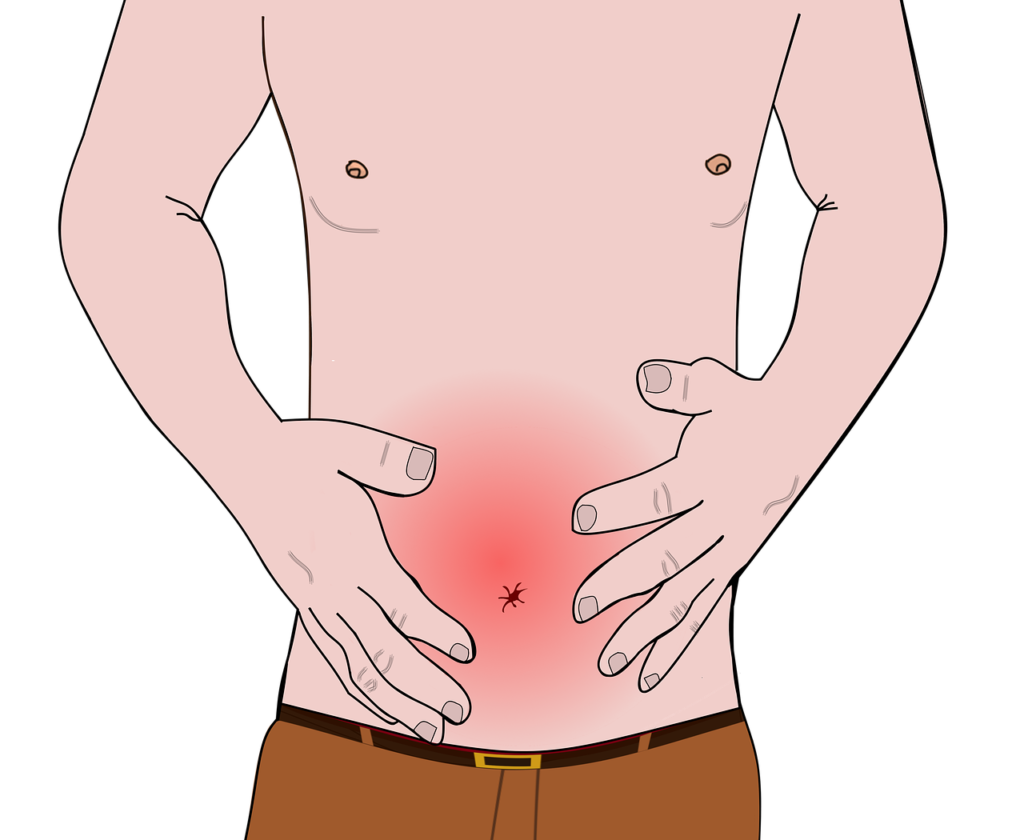The term “Grahni” is frequently used in Ayurveda to describe a syndrome that resembles certain aspects of irritable bowel syndrome (IBS) in modern medicine. Grahni is a digestive disorder caused by a decrease in the digestive fire (Agni) and an imbalance of the doshas, specifically Vata, Pitta, and Kapha. It includes symptoms such as constipation, abdominal pain, bloating, and malabsorption.
IBS, on the other hand, is a functional gastrointestinal disorder distinguished by chronic abdominal pain, altered bowel habits, and bloating in the absence of structural or biochemical abnormalities. It is an exclusion diagnosis, which means that other gastrointestinal conditions must be ruled out before a diagnosis of IBS is made.
While there are some similarities between Grahni and IBS, it’s important to remember that the two are based on different medical traditions and conceptual frameworks. Ayurveda examines health and disease through the lens of doshas (Vata, Pitta, and Kapha), emphasising a holistic approach to balancing these energies for overall well-being. In contrast, conventional medicine defines IBS by specific criteria, and its diagnosis is based on symptoms and the exclusion of other medical conditions.
The following are some similarities between Grahni and IBS:
Digestive symptoms: Grahni and IBS both cause digestive symptoms such as abdominal pain, altered bowel habits (constipation, diarrhoea, or a combination of the two), and bloating.
Stress as a Trigger: Both systems recognise stress’s impact on digestive health. Both Grahni and IBS symptoms can be exacerbated by stress.
Individual Variation: Both systems recognize that individuals may present with different symptoms and that personalized treatment approaches may be required.
Let’s delve deeper into the comparison between Grahni in Ayurveda and Irritable Bowel Syndrome (IBS) in conventional medicine:
Grahni in Ayurveda:
1. Conceptual Framework:
- Dosha Imbalance: Grahni is viewed as an imbalance of the doshas, especially Vata, Pitta, and Kapha.
- Impaired Digestive Fire (Agni): The digestive fire is believed to be weakened, leading to improper digestion and absorption.
2. Types of Grahni:
- Vataj Grahni: Symptoms include irregular bowel movements, abdominal pain, and bloating, often associated with an aggravated Vata dosha.
- Pittaj Grahni: Involves increased acidity, inflammation, and loose stools due to Pitta dosha imbalance.
- Kaphaj Grahni: Associated with sluggish digestion, mucus in stools, and a heavy feeling in the abdomen, linked to Kapha dosha dominance.
- Sannipatik Grahni: Involves a simultaneous imbalance of all three doshas.
3. Causative Factors:
- Dietary Factors: Improper diet and incompatible food combinations are believed to contribute to Grahni.
- Psychosomatic Factors: Stress, anxiety, and emotional factors can play a role.
4. Treatment Approach:
- Dietary Modifications: Tailored diet plans based on the dosha imbalance.
- Herbal Remedies: Use of herbs like Triphala, Musta, Bilva, and Kutaj.
- Lifestyle Changes: Stress management, regular exercise, and maintaining a daily routine.
- Detoxification Therapies: Panchakarma treatments may be recommended.
Irritable Bowel Syndrome (IBS) in Conventional Medicine:
1. Diagnostic Criteria:
- Symptoms-Based Diagnosis: IBS is diagnosed based on symptoms such as abdominal pain, changes in bowel habits, and bloating.
- Exclusion of Other Conditions: Diagnosis involves ruling out other gastrointestinal disorders through tests.
2. Types of IBS:
- IBS with Constipation (IBS-C): Predominant symptom is constipation.
- IBS with Diarrhea (IBS-D): Predominant symptom is diarrhea.
- Mixed IBS (IBS-M): Alternating between constipation and diarrhea.
3. Causative Factors:
- Gut-Brain Axis: Dysregulation of communication between the brain and the gut.
- Altered Gut Motility: Abnormal contractions of the intestines leading to changes in bowel habits.
- Visceral Hypersensitivity: Increased sensitivity of the gut to normal stimuli.
4. Treatment Approach:
- Dietary Modifications: Elimination diets, fiber supplements, and identifying trigger foods.
- Medications: Antispasmodics, laxatives, and medications targeting specific symptoms.
- Psychological Therapies: Cognitive-behavioral therapy (CBT) and stress management.
- Probiotics: Some individuals find relief with probiotic supplements.
Commonalities and Differences:
Symptoms: Both Grahni and IBS involve symptoms such as abdominal pain, altered bowel habits, and bloating.
Approaches: Ayurveda focuses on balancing doshas through holistic approaches, while conventional medicine often involves symptom-based management and addressing specific physiological mechanisms.
Individual Variation: Both recognize that individuals may present with different symptoms, and treatment plans need to be personalized.
Integration: Some individuals choose an integrative approach, combining Ayurvedic principles with conventional medical care for comprehensive management.
It’s important to note that while there are overlaps, the diagnostic and treatment paradigms are distinct. Individuals experiencing digestive issues should seek guidance from qualified practitioners in the respective systems for an accurate diagnosis and appropriate management plan. Integrative care, when coordinated between Ayurvedic and conventional medical professionals, can offer a more holistic approach to managing these conditions.
Regardless of their similarities, it is critical to approach these conditions within the context of their respective medical systems.
Grahni Ayurvedic treatment entails balancing the doshas through dietary changes, herbal remedies, and lifestyle changes.
If you are having digestive problems and suspect Grahni or IBS, it is best to consult with Ayurvedic practitioner. Seek advice from qualified practitioners in the field of ayurveda to ensure a safe and effective treatment plan that is tailored to your specific needs.


Very informative article.Keep it up sir.
Thanks sir. keep reading and keep supporting.